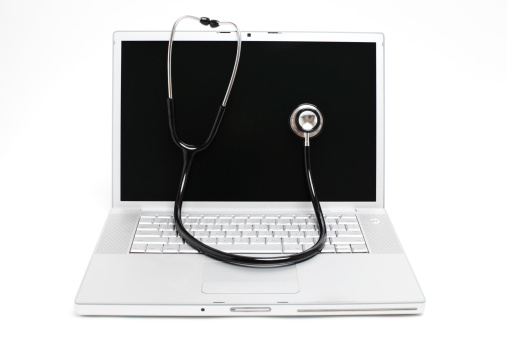
I recently supervised a new intern as she conducted a patient interview. Following procedure, the intern reviewed the patient’s electronic medical record (EMR) and checked his lab results. She noticed that his cholesterol was high, and he told her that he had stopped taking his atorvastatin due to a recent trip to the Dominican Republic.
“It’s no problem,” my intern replied. “We’ll get you back on the medication.” She began to navigate through the online prescription ordering system.
“I had to go to Santo Domingo because my brother died,” the patient said, tearing up.
As she searched the computer screen for the right section to order a follow-up blood test, the intern reassured her patient not to worry; the medication would bring his cholesterol under better control.
Seeing that the patient was in distress, I stepped in. “Tell me about your brother.”
“He was my twin,” he replied.
The intern looked up from the computer screen, startled. “I’m so sorry,” she said.
It was clear to me that lack of compassion was not the issue in this intern’s “miss.” Rather, she was struggling with a problem familiar to more and more physicians practicing in the electronic age: the patient-computer attention war.
The EMR, an online patient information system, has greatly advanced the centralization and timeliness of patient information for physicians. Where once we sifted through paper charts and waited for specialists to call, we can now see test results, check other physicians’ notes and clear patients for surgery at the click of a mouse. Our ability to provide the right documentation to the right place instantaneously has improved, the communication between doctors and staff is much better and there’s a trail for everything. The benefits we have seen in a relatively short amount of time, including an 85 percent reduction in prescribing errors and significant improvements in transitioning care, are inarguable.
As a practicing physician who sees patients regularly in my outpatient practice, I appreciate the efficiency of the EMR. My patients particularly like that I have most, if not all, of their medical records at a glance, even those from doctor visits outside the Montefiore system.
This efficiency, however, seems to come at a cost to the doctor-patient relationship.
The design of most EMRs requires physicians to navigate through multiple templates while hundreds of items come across the screen requiring review, signature and follow-up. I have used our EMR system since its inception, and by now the documentation and test ordering have become second nature. Even so, I find that the EMR sometimes creates a barrier to the empathic presence I strive for with my patients. Even the peripheral awareness of a screen filled with action items creates distraction. As I routinely counsel new and training doctors on the importance of smiling, noticing interpersonal cues and asking screening questions to build authentic connections with their patients, I want to make sure I practice what I preach.
During a recent visit with my own physician, I noticed a marked change in the funny, compassionate man I’ve known for years. His sense of humor and ability to smile had become less spontaneous. His practice had recently switched over to the EMR system. I felt his pain, and wondered whether the electronic elephant in the room has challenged our ability to partner with our patients—the joy of our life’s work, for many of us.
I am proud to be part of an organization such as Einstein/Montefiore, where we are equally committed to leading-edge medical innovation and to continual quality improvement. We have pioneered meaningful use of the EMR, and I suspect that the issue of the doctor/patient disconnect is an inevitable “growing pain” that comes with blazing these trails. As evidenced by our myriad of quality-improvement initiatives, appropriate intervention and support can successfully overcome a host of obstacles in the advancement of medical care.
What those measures will be—whether adaptations to the online system, the hiring of specially trained scribes to assist during the patient interview or other measures—remains to be seen. I look forward to a future where both patients and physicians can reap the new and unfolding benefits of the EMR while preserving their ability to connect fully through meaningful communications.


Comments on this entry are closed.
I couldn’t agree with you more. Electronic Medical Records are wonderful technology for sharing medical records between physicians and obtaining medical test results in a much more timely manner. By the same token EMR has had a negative effect
to some degree on the physician-patient relationship. For some patients it has totally destroyed it because the physician sits with her head buried in her computer never looking up while questioning her patient thus never making a connection. What pt.
Is going is going to confide in a physician where no connection and trust has been established. Other physician’s have found a way to minimize the intrusion of the EMR system into the physician-patient encounter. Those that do it best obviously maintain
the best physician-patient relationship.
Hello:
What a stroke of luck to run across your blog, and your post! You are dealing with the most basic component of patient care, the doctor-patient relationship.
I believe the lack of contact will disappear the better we get with EMR’s, and that, as before we shuffled paper, searching, that time will be used for more patient interaction. The tech is new, especially to old docs like me, and your doc. But we will get better, and the good docs will shine through like before!
Anyways, I put your post on our front page, at http://www.InternetMedicine.com, as well as a permanent link at http://www.InternetMedicine.com/medical-education
thanks, and keep in touch with any new developments!